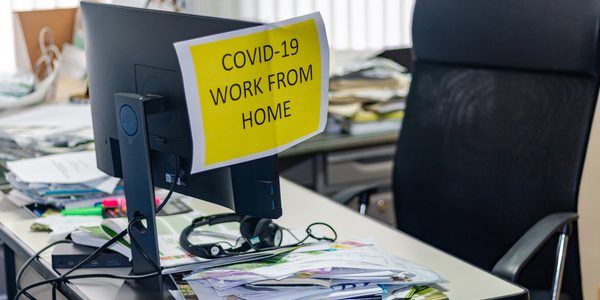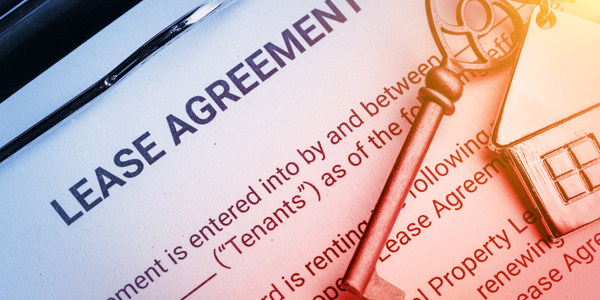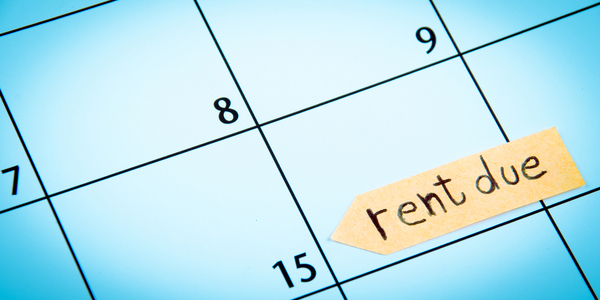
With new infection hotspots popping up around the country, and as U.S. businesses slow or stop operations entirely, many owners have renewed concerns about their commercial leases. In fact, since mid-March, landlords have been swamped with questions regarding business insurance coverages, force majeure provisions, continued financial obligations, and the plausibility of making lease amendments.
While the situation appears dire for business owners, landlords actually find themselves in similarly difficult circumstances amid the recent pandemic; the principle source of revenue for landlords is rent paid by commercial tenants, many of which simply aren’t making money at the moment. In other words, landlord income is largely dependent on their tenant’s financial well-being.
First and foremost, most tenants are primarily worried about making their next rent payment. Understandably so, failure to make express payment under a commercial lease is grounds for default and subsequent evection. Unfortunately, a pandemic such as COVID-19 doesn’t excuse commercial tenants from making their regularly-scheduled payments. In general, a commercial lease will be interpreted as it’s written (even though at the time of its writing, very few people were anticipating a global pandemic). But given that a tenant’s revenue is also very important to the landlord, property-owners may be surprisingly willing to compromise or devise creative solutions, such temporary rent reduction, forbearance, restructuring of the payment schedule, or even reliance on the security deposit.
Financial responsibilities aside, there are other contractual obligations that commercial tenants should be cognizant of, as they may be difficult or impossible to fulfill given the current situation. One example is the tenant’s responsibility to keep operations running and the commercial space filled throughout the term of the lease. These are sometimes called Continuous Operation Provisions or Operating Requirements and it’s obvious how tenants may have trouble honoring them during the COVID-19 pandemic.
What are Continuous Operation Provisions?
To the surprise of some business owners, commercial leases might contain language requiring tenants to fully utilize the rental space. Particularly for retail-based businesses, the contract may require renters remain completely staffed, stocked, and operational on the premises that they’re renting. Put another way, failing to use the space for their business purposes may in-fact violate the lease agreement.
Somewhat paradoxically, some businesses are required to remain operational (per the continuous operation provisions in their lease) but at the same time required to temporarily shut down (per federal or state regulations). Importantly, while a lease may contain continuous operation provisions, it also requires tenants obey the law—which includes any and all regulations pertaining to the Coronavirus. This means for business who are forced to close by government regulations, landlords won’t pursue damages for contract violations related to continuous operation provisions.
However, if businesses aren’t mandated to temporarily cease operations, yet owners still want work to proceed remotely, landlords may have grounds to claim nonperformance of continuous operations provisions. In these cases, tenants may be able to rely on force majeure.
Force Majeure and Commercial Leases in the Coronavirus Era
Although it isn’t very common, some commercial leases will contain language on force majeure clauses. Simply put, in the instance of a qualifying event, these provisions may legally relieve parties from their obligations under the agreement.
Force majeure is only relevant in instances of extraordinary events that are beyond control of the involved parties. In other words, in the case of a qualifying force majeure event (perhaps COVID-19), parties are freed from some liability under their commercial lease. However, there are two important things to note when it comes to force majeure in commercial leases:
1. The Interpretation of a Qualifying Force Majeure Event can be Contentious
2. Force Majeure in Commercial Leases may only Excuse some Aspects of Nonperformance
First off, determining a qualifying force majeure event can be difficult, especially if only one party stands to benefit from a successful claim. The theory of force majeure is relatively simple, but in practice it’s not uncommon for parties to dispute or disagree on what constitutes as a qualifying event. This often comes down to a contentious interpretation of what is considered “extraordinary”, which in the past has included things like acts of war, epidemics or plagues, labor strikes, natural disasters (also called “acts of God”), and acts of government. Early indications appear to suggest that the COVID-19 pandemic can qualify as a force majeure event, but this largely depends on the language of the contract and the details of the particular situation.
Second, force majeure in a commercial lease will almost never excuse a tenant from their financial obligations. Generally, these provisions only apply to things like the landlord’s responsibility to provide rental space to the tenant, and rarely excuse a tenant’s inability to pay rent.
So can force majeure be invoked if a landlord is pursuing matters related to the violation of continuous operating provisions? It’s certainly feasible, so long as the COVID-19 pandemic is indeed a qualifying force majeure event. If so, tenants might have a legal basis for nonperformance of provisions requiring continuous operations.
 July 16, 2020
July 16, 2020



